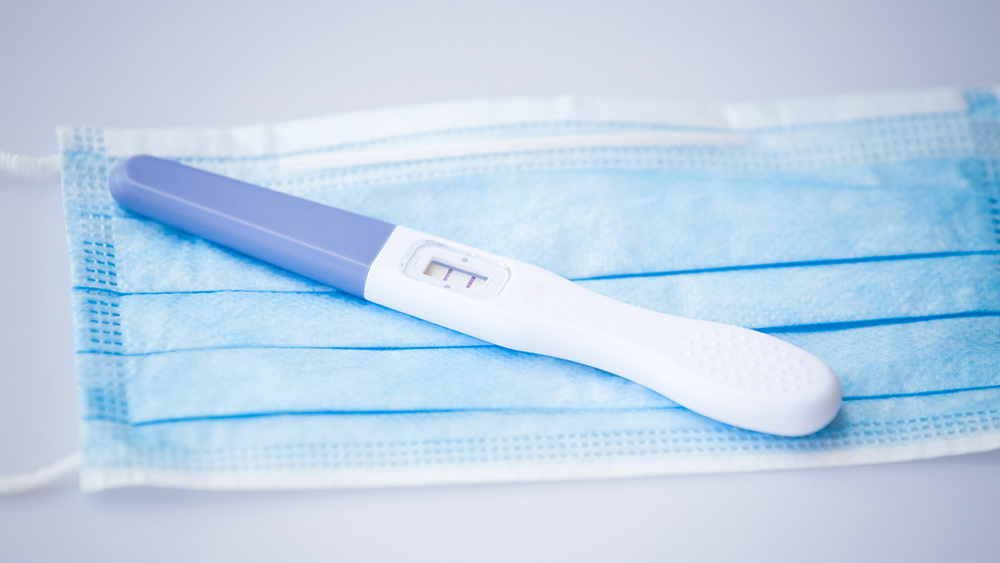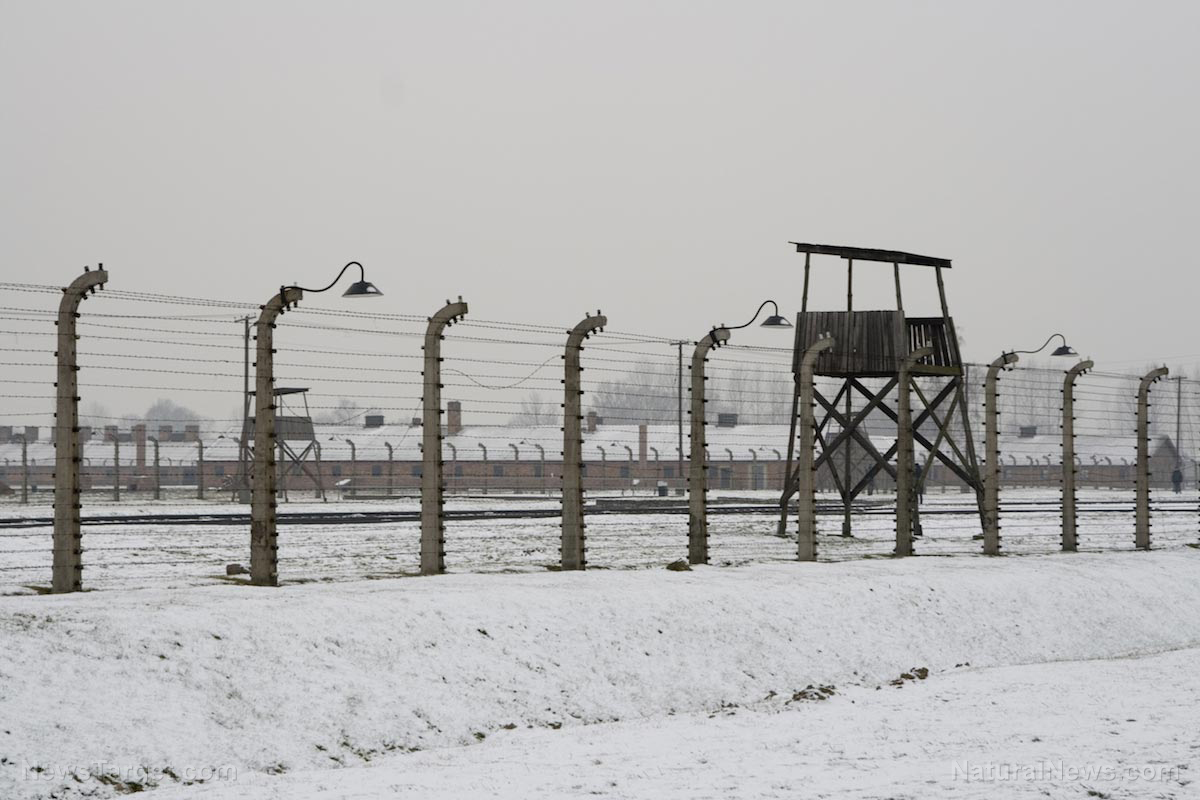Amtrak to cut services due to labor shortages made worse by federal vaccine mandate
12/14/2021 / By Matthew Davis

The staff shortages exacerbated by President Joe Biden’s Wuhan coronavirus (COVID-19) vaccine mandate on federal contractors have led to the cutting of some services by Amtrak.
In a written testimony to the House Transportation subcommittee, Amtrak President Stephen Gardner said 94 percent of the company’s staff members have been fully vaccinated while 96 percent have received at least one dose of the vaccine.
But Amtrak can’t afford to lose more employees as it’s already struggling with the loss of many engineers, conductors and on-board service employees during the pandemic due to retirement and other reasons.
“We temporarily halted hiring due to funding uncertainty and COVID-related distancing requirements that inhibited training and we anticipate that we will not initially have enough employees to operate all the trains we are currently operating when the federal mandate takes effect,” explained Gardner.
The White House mandate set by the Biden administration instructs all federal contractors to get vaccinated by Jan. 4, 2022. Amtrak employs more than 20,000 employees, which means more than 1,200 of its employees are still not fully vaccinated. (Related: Southwest Airlines “sickout” protest spreads to Amtrak, which is canceling trains due to employees refusing COVID vaccination.)
Particularly affected are Amtrak’s long-distance services as crew bases across the country have a relatively high percentage of unvaccinated employees. It is unlikely all employees will meet the deadline set by the administration, resulting in Amtrak not having sufficient trained staff to support current service frequency on affected routes.

Gardner said the transportation company will reveal the affected routes next week. “We anticipate proactively needing to temporarily reduce some train frequencies across our network in January to avoid staffing-related cancellations, with our plan to fully restore all frequencies by March or as soon as we have qualified employees available.”
An inspector general report released last week also noted that Amtrak faces challenges in hiring qualified personnel as it does not have sufficient leadership or staff to recruit new team members.
White House Press Secretary Jen Psaki said during a briefing that she does not expect disruptions to affect essential services.
“We don’t expect these requirements will cause disruptions to services that people depend on. There is some time to implement it. We are, of course, working with all federal contractors and federal employees and parts of the federal government to implement this going forward.”
A recent ruling by a federal judge in Georgia put Biden’s vaccine mandate temporarily on hold.
Scarcity of workers holds back Amtrak’s growth
Despite its biggest boost in history following the approval of the landmark infrastructure package, Amtrak is facing an immediate crisis which threatens service due to scarcity of workers.
Presently, the intercity passenger railroad is operating about 80 percent of its normal schedule after deep reductions last year. This can be reduced further next month when the railroad is set to enforce a vaccination policy, which the company says could lead to the termination of six percent of its workforce.
Biden recently signed a $1.2 trillion infrastructure bill that puts $66 billion into rail. Amtrak is planning to use the money for expansion. It will also tackle a backlog of projects to make its services more efficient.
The cash infusion has created the most substantial growth opportunity in Amtrak’s 50 years of existence, coming alongside economic conditions that simultaneously threaten to diminish the system.
“We’ve spent decades trying to get this level of political and public support for train service. Now we have it, and the most immediate way to get the public excited is to add service where it already exists,” said Jim Mathews, president and CEO of the Rail Passengers Association.
Matthews said it’s a real shame that the carrier will not be able to realize its plans. Amtrak said it is challenging to find and retain workers despite stepping up in recruitment.
Amtrak faces competition from other railroads to recruit experienced train engineers and mechanics. It is also looking for cooks, cleaners and other service personnel in a market where hotels and restaurants also are stretched thin.
Freight railroads CSX and Norfolk Southern are also saying that labor constraints are affecting their services.
According to the Bureau of Labor Statistics, railroad companies that employed 160,500 people in January 2020 were down to 142,500 last month.
Jessica Kahanek, spokeswoman for the Association of American Railroads, said that freight railroads handle more than 300,000 trailers and containers each week on average – about 30,000 more than in previous months without major growth in the workforce.
Thanksgiving Week was the busiest for Amtrak when it came to passenger rail. It carried 600,000 passengers, and the railroad estimates it will be at 75 percent of normal passenger levels this month after hitting a low of three percent early last year.
Qiana Spain, Amtrak’s executive vice president of human resources, said the public’s return to the tracks is putting more pressure on the company to restore trips. “We are seeing some impacts of going back to full schedule. If we were fully staffed, we would be able to offer more schedule, where right now we’re unable to do that.”
The railroad said it is not promising customers more trips than it can handle. “We’ve been really monitoring that very closely to make sure that we have the right operational plan,” Spain said.
The most immediate concern of Amtrak is the potential terminations of unvaccinated workers on Jan. 4. Chief executive William J. Flynn told staff members last month the railroad is preparing for temporary service reductions as about six percent of its employees have not yet complied with the policy. (Related: JAB FOR PAY: Amtrak offering cash bonuses to employees who get coronavirus vaccine.)
Industry and labor leaders predict that some long distance routes that cross the U.S. could temporarily go from daily service to just three times a week. Rural areas are most likely to be hit, in part because vaccination rates are lower and crews are smaller there.
New services that have been in the works for years are also being threatened by staff shortages. Officials were expecting two new routes in Virginia this year, but the launch was postponed until next year.
Follow Pandemic.news to know more about the impacts of the pandemic on different industries.
Sources include:
Tagged Under: amtrak, big government, chaos, Collapse, covid-19, freight, Joe Biden, labor shortages, medical fascism, Medical Tyranny, pandemic, railroads, trains, vaccine mandate, vaccine wars, workforce




















